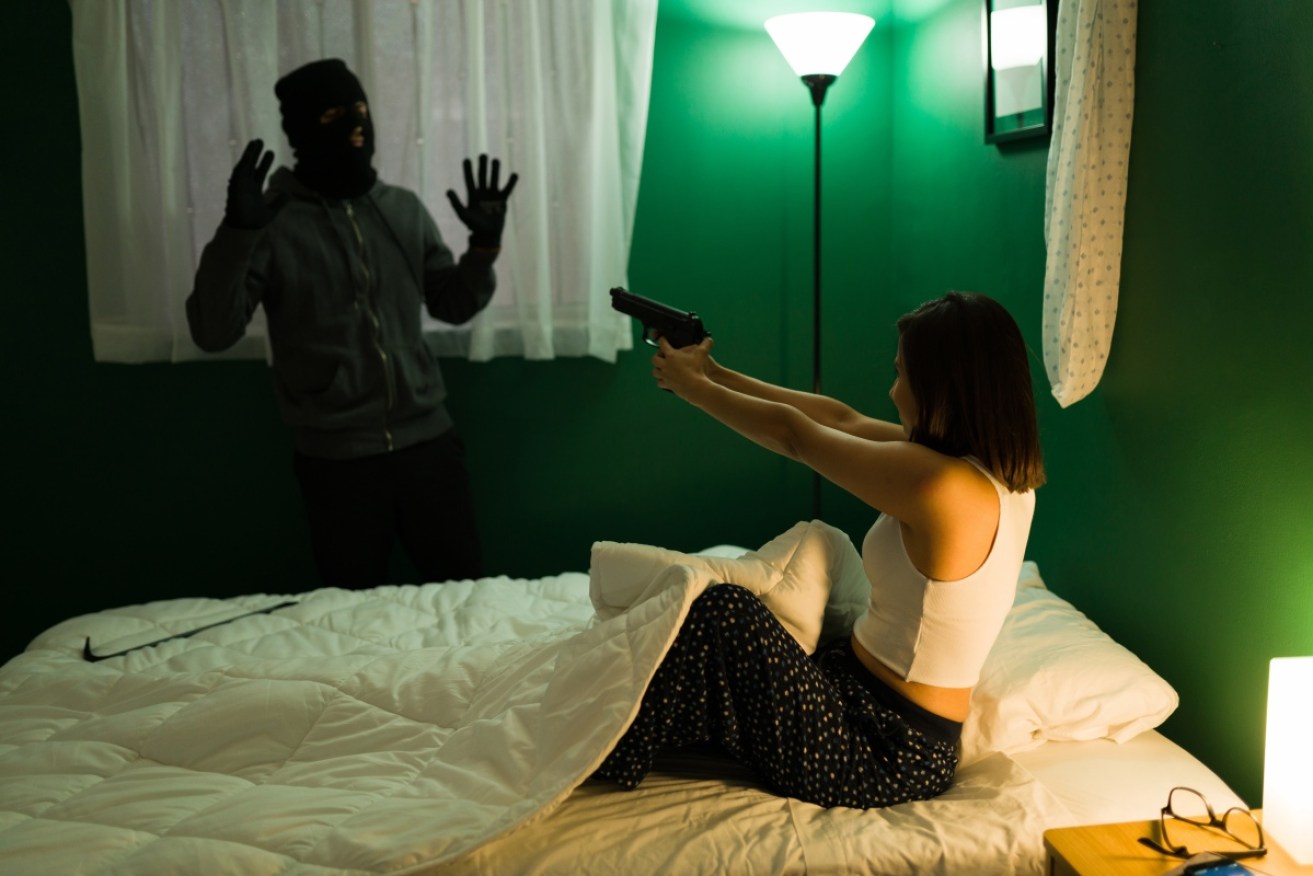New theory: The dangers to your brain of staying up after midnight


Staying up late changes the brain, possible leading to poor decisions, like committing burglary. Photo: Getty
When we’ve stayed up late, we tend to blame the lack of sleep for our subsequent grumpy mood and foggy thoughts.
No doubt poor sleep puts a drag on our mood and cognition, but a new theory suggests something more sinister is going on.
Called the ‘Mind after Midnight’ hypothesis, from the Department of Neurology at Massachusetts General Hospital, the idea is that during the night, specifically after midnight, our brains work differently and take a left-hand turn into the dark side.
This worked well enough when early humans were wandering the plains, and forever in fear of the dark and what lay lurking there.
Once the sun went down, the world was an even more threatening place, requiring a more aggressive, fearful and negative state of mind.
But in modern terms, these necessary primal postures, perched on the edge of violence, would be explained as pathology, notably mental illness.
Where do our minds lead us in the dark?
According to Dr Elizabeth B. Klerman, professor of Neurology at Harvard Medical School and the senior author of the paper, we become more prone to bad, even criminal behaviour, and to self-destruction.
On the lesser side, this might amount to eating an entire tub of ice-cream, wallowing in misery and regret, or letting your vicious side run amok on Twitter.
On the truly horrible side, staying awake for too long is a risk factor for suicide, compulsive gambling, hitting the drugs and heading out to knock off a convenience store for the hell of it.
Dr Klerman said that when we are awake ‘‘during the biological circadian night, there are neurophysiological changes in the brain that alter the way we interact with the world, especially actions related to reward processing, impulse control and information processing’’.
These changes can ‘‘make you more likely to view the world negatively and make impulsive decisions without fully thinking through the consequences’’.
“The basic idea is that from a high-level, global, evolutionary standpoint, your internal biological circadian clock is tuned towards processes that promote sleep, not wakefulness, after midnight,” she said.
What happens next?

The body’s internal clock is not designed for late nights.
Dr Klerman says her hypothesis is a call for researchers to investigate how these circadian differences affect behaviour, decision making and job performance at night.
A major 2018 study published in Lancet Psychiatry found that disrupting the body’s internal clock – such as by doing regular night shifts – has been linked to increased risk of mood disorders, depression and reduced all-round wellbeing.
As reported in Nursing Times, the study was reportedly the largest at that time to explore the effect of disturbing the body’s circadian rhythms – the normal pattern of activity and rest that people experience every 24 hours.
Researchers from the University of Glasgow found that interrupting these patterns was linked to a range of adverse outcomes, including increased risk of depression and bipolar disorder.
People who experienced disruption to their circadian rhythms ‘‘were more likely to be dissatisfied with their all-round health, were generally less happy and more likely to say they felt lonely’’.
They also had slower reaction time.
Staying up late to prove the theory
‘Mind After Midnight’ is an idea well supported by a variety of studies, but it requires validation “through carefully constructed research studies”.
Ironically, this will require a lot of night work.
Dr Klerman said the best way to gather this data ‘‘will require researchers and study staff themselves to be awake and working after midnight’’.
For example, the research could involve taking MRI images of study participants whose sleep cycles have been carefully adjusted for night-time wakefulness or conducting other protocols.
“Most research assistants and technicians don’t want to be awake in the middle of the night,” Dr Klerman said.
“But we have millions of people who have to be awake at night or are awake at night involuntarily. Some of us will have to be inconvenienced so we can better prepare them, treat them, or do whatever we can to help.”








